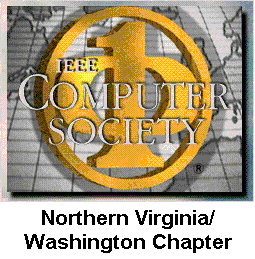
presented by
 |
presented by
|
|
6:30p Food and socializing 7:00p Opening remarks 7:15p Technical presentation 8:15p Q & A session 8:30p Conclusion and remarks
Mr. Scott has a B.S. in Electrical Engineering from the University of Maryland, and a J.D. from Catholic University. Prior to a career in law, Mr. Scott worked for the National Security Agency and Lockheed Martin, where he specialized in firmware and board design. Mr. Scott currently focuses his practice in all areas of intellectual property law, including patents, trademarks, and copyrights, and specifically in software, optics, opto-electronics, LED's, semiconductors and nano-technology. Mr. Scott has been a contributor to the Olin Graduate School of Business at Babson College and a consultant to the Greater Reston Chamber of Commerce in Northern Virginia/Washington. Mr. Rahman has a B.S. in Mechanical Engineering from the University of Maryland, a J.D. from VillaNoVA/DC /DC /DC University, and an M.B.A. from VillaNoVA/DC /DC /DC University. Prior to law school, Mr. Rahman worked in the aerospace industry. Mr. Rahman currently focuses his practice in the computer-related arts including e-commerce, business methods, computer hardware and software, as well as electro-mechanical technologies. Mr. Rahman assists companies from internet start-ups to multi-million dollar companies, and has assisted in establishing in-house patent programs, as well as helping them protect their valuable proprietary assets through trademarks and copyright protection. McGinn & Gibb, PLLC is a law firm, which restricts their practice to intellectual property law and has offices in Tyson's Corner, Virginia and Annapolis, Maryland. The firm has 10 attorneys and has had over 300 patents issue in the past year alone. Over the past three years, McGinn & Gibb had the greatest increase in issued patents of any firm in the U.S., as reported by Intellectual Property Today.
Lawrence Scott and Mohammad Rahman, from the Intellectual Property Law Firm of McGinn & Gibb, PLLC, will present a comprehensive proactive intellectual property plan that includes incremental approaches from both a financial and a scope-of-coverage perspective. Such plans include, for example, integrating employment agreements, contractor agreements, licensing agreements, documenting the inventive process, and evaluating whether it is economical to file for a patent as opposed to keeping an idea a trade secret, or securing other rights such as copyright protection. Incremental approaches allow individuals and companies to mitigate their upfront intellectual property costs, while at the same time, to take the necessary steps to ensure that future intellectual property rights are not lost. In addition, such plans allow an individual or company to easily monitor and re-evaluate each piece of intellectual property and to constantly align the intellectual property with the company's current and future goals. Of particular interest to many has been the recent phenomenon of computer-related patents, such as software, hardware, and business-method patents. After a court decision in the mid 1990's allowed for broader interpretation of the current U.S. patent laws, and specifically allowed for patent protection for computer software and business-method patents, the number of patent applications related to these areas has increased dramatically. However, recent court decisions have interpreted many of these patents very narrowly therefore causing many practitioners to reconsider how and even whether to file certain computer-related patent applications. Therefore, the presentation will focus on implementing in-house patent programs with an emphasis on computer-related technologies. The discussion will include how to make the determination which technology is patentable, and what the risks and rewards are for applying for a patent. |